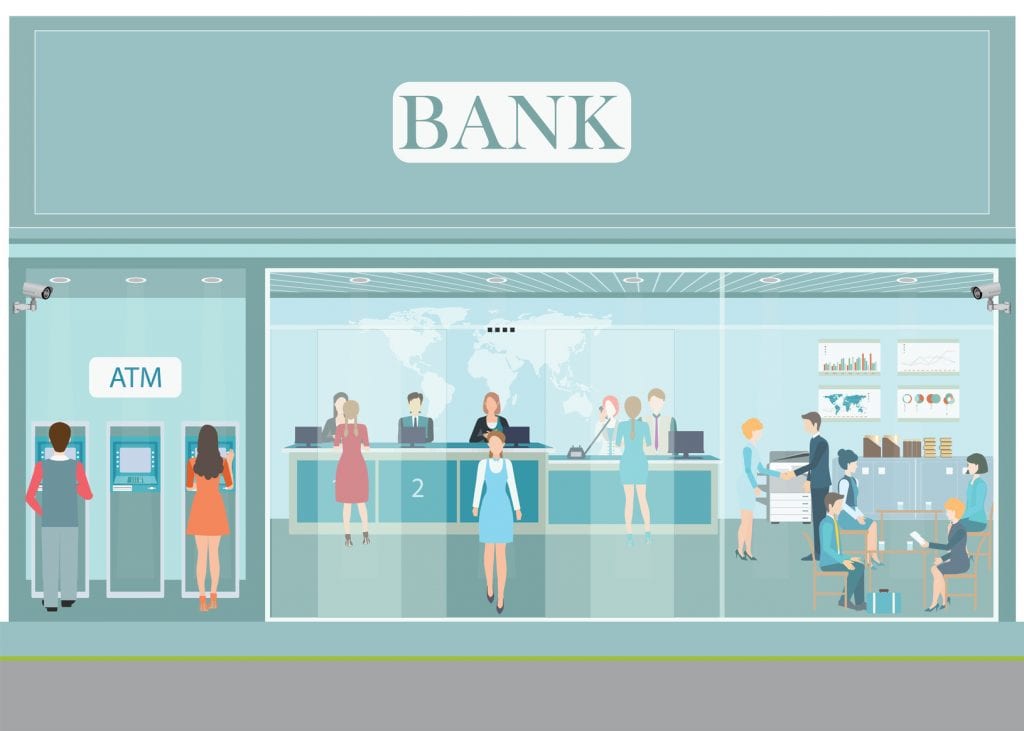Provider: “What is your bank?” Customer: “Amazon.”
Once upon a time, that scenario seemed preposterous but not anymore. Disruptors are moving in and dinosaur banks may get left behind unless they move faster to adopt open banking standards, particularly in the U.S.
Globally, particularly in Europe, Australia and some countries in Asia, the driver for open banking has been two-fold. First, regulation – forcing organizations to open up their systems and make them accessible to third-party providers. The second is the digitization – customers demand much more accessibility and services, their expectations are higher. This hasn’t been the case in the U.S. though but the trend is slowly gaining traction. As multi-faceted tech companies realize that they already control a large portion of the consumer lifecycle, banking is a natural next step. For banks, who have the customer loyalty and data security trust, the next step is expanding services but this requires a step outside of their comfort zone.
In the absence of forced regulation, what can the behemoths do to stay relevant in such a shifting landscape?
Second, focus on the total experience. Today’s customer is smart, well informed, and expects services to meet his or her changing needs – from new payment options to real-time transactions. Banks need to own the whole journey and offer solutions, not products, to fit with a customer’s changing lifestyle. People’s needs shift throughout their lifetime and their digital profile will change. If banks can’t get ahead of this, they lose the customer. Institutions need to focus now on customer dissatisfactions. Historically banks have addressed problems AFTER the revenue has been lost. The mindset needs to shift in order to
identify, create, and deliver the value your customer seeks. Lead with customer centricity, don’t lead with products that the customer doesn’t understand or need.
Finally, banks need to accept that fintech partnerships are not a threat but an opportunity. Banks still have a trusted base and they can leverage this by making the right decisions. Partnerships are catalysts for change and by finding the right opportunities within the ecosystem they will add value to the supply chain. Collaboration has many faces and doesn’t have to just be in financial services but can also make sense when it can add value across a customer’s life – in the example of homeownership. The right partner can actually result in more revenue for the bank.
To make partnerships work, banks need to be able to see across all of their customer and partner transactions. It is this level of visibility that will make open banking live up to its name and will allow more access to data so that the customer’s needs can be addressed with foresight instead of hindsight. It will give institutions insight into any customer problems and figure out if it can be addressed before the revenue is lost. Finding the right technology partner to help facilitate a move to open banking is also key. A few key things will need to take place to make this work:
- Partner products and services will need to be offered with limitations or restrictions.
- The partner will need to be managed as a unique business entity driven by a structured revenue management framework.
- The independent characteristics of various players in the open banking ecosystem (customer-owners producers, distributors, etc.) will need to be carefully defined and differentiated
- A build once and reuse model
In an age of digital everything, the excuse that banks have held onto for so long, the inflexibility of legacy systems, can no longer be a fall back. Banks must adopt a scalable infrastructure that can handle multiple partners in order to address the complexities of today’s customers– for example, varied payment models – and provide a trusted and secure environment for the transfer of data.
The days of monopolistic banking in the U.S. are over. Banks will eventually be forced, some kicking and screaming, to open up their systems. For now, while we wait in limbo, banks should start making cultural changes to the way they operate on a daily basis. The combination of strong leaders and the right technology partners will put them on the path to success.
Banks need to be living in the future instead of the past. Open banking may be in its naissance, but eventually, winners and losers will be identified. Accenture recently reported that 2018 is the year in which attitudes towards open banking will separate good trading partners from those employing trade barriers. The victors will likely be those who own their customers journey by embracing collaboration. Those who own the customer will own the economics.
Balakrishnan Narasimhan is a Vice-President at SunTec Business Solutions, whose technology powers financial services and delivers to over 300 million consumers worldwide. Narasimhan has more than 20 years of experience across multiple banking operations, product management and technology across the globe. He has specialized expertise in core banking, CRM, digital channels, alerts and messaging, AI, retail and commercial payments, cards (credit and debit), liquidity management and system integration.
